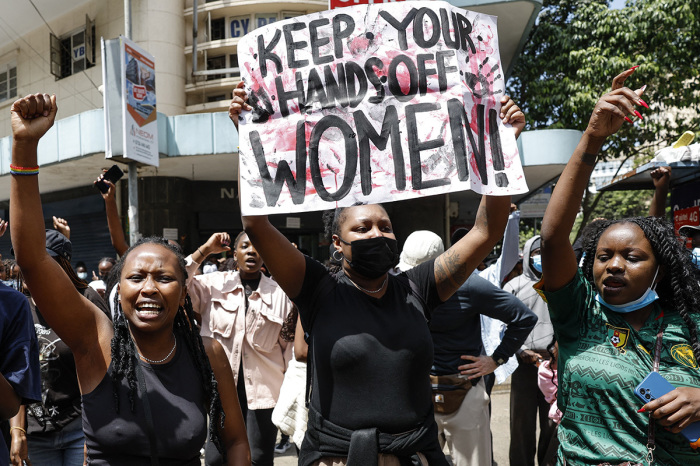
2024 saw a marked increase in women being murdered in Kenya despite a heightened awareness of the crisis and government measures to curb what the World Health Organization terms as femicide. This is according to a report published by Kenyan media and research organizations, African Uncensored and OdipoDev, that recorded at least 170 women killed last year: one woman every other day.
The study, which recorded the murder cases from media reports and court cases, showed that husbands of the victims were responsible for nearly half of the cases. In total, people known to the victims, including husbands, ex-husbands, boyfriends or family members, were responsible for 75 percent of the murders.
Public protests and increased media coverage of the alarming number of women being killed by their intimate partners in 2023 prompted the government to respond by setting up a special police unit to investigate gender-based violence. There was also an increase in the number of convictions relating to femicide in 2024.
“The high level of public outcry around femicide seems to have spurred the justice system to action. Convictions have increased by 118 percent in 2024 from the previous year, the highest level it has been since 2018,” noted the report. “The average sentence was 20 years up until 2023. The number increased to 23 years in 2024.”
Additionally, the cabinet approved the formation of a Presidential Working Group on Femicide in December 2024, which will engage religious leaders, parents, schools and security agencies to identify gaps in law, enforcement and social values that contribute to this crisis. This is in line with the government’s commitment to ending gender-based violence by 2026 as part of its pledge in the Generation Equality’s Action Coalition.
However, delays within the judicial system meant the victims’ families had to wait for an average of four years to get a verdict in 2024 compared to 3.6 years between 2016 and 2023.
Human rights organizations have argued that Kenya’s existing laws and policies are sufficient to significantly reduce gender-based violence (GBV) but execution remains the weakest link in the battle to preserve lives especially in home settings where most of the murders are recorded.
According to U.N. Women’s Kenya Representative, Anna Mutavati, violence against women and girls remains “shockingly rampant” despite the laws, policies and commitments. “Femicide is the most brutal and extreme manifestation of violence. Prevention is our best option against GBV in general but against femicide in particular,” said Mutavati.
Others, such as the Rev. Lydia Mwaniki, who leads the gender, women and youth division of the All Africa Conference, believes religious leaders shouldn’t remain silent in the face of the femicide crisis.
“Actually, religion itself in many instances, has been labeled as the problem, but we have to speak out. We are part of the solution and we want to change the narrative, because many times we are quiet […] but now we have come out to say no [to GBV],” said Mwaniki during an interfaith roundtable to discuss practical ways religious organizations can counter femicide.
In addition to providing protection, safe houses and counseling for the victims of gender-based violence, the report adds that more needs to be done to support the psycho-social and economic well-being of young men aged 18-35, who are the most common suspects in femicide cases.
Christian Daily International previously reported about a similar study that highlighted the devastating toll of women killed by their partners or family members in Kenya. Experts note that femicide is often fueled by gender stereotypes, harmful social norms and an unequal balance of power between men and women. The vast majority of the murders reportedly result from family quarrels, with femicide often preceded by domestic violence
Irene Kibagendi, the executive director of the AEA Women’s Commission, commented at the time that violence against women is turning homes, traditionally places of refuge, into unsafe spaces for women.
“The finality of this cruel and intentional act that many women and girls are experiencing is robbery to one’s life, taking into account the inhumane process that causes trauma, fear, agony, psychological and physical isolation for hours or days before they are finally killed. This is quite disheartening,” said Kibagendi.
She urgently called for the government’s intervention, highlighting the apparent inadequacy of previous efforts to protect women.
This article was originally published at Christian Daily International
Christian Daily International provides biblical, factual and personal news, stories and perspectives from every region, focusing on religious freedom, holistic mission and other issues relevant for the global Church today.








